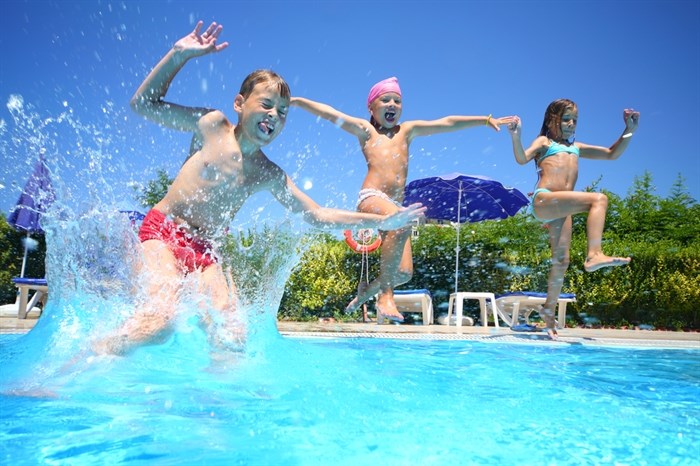
Image Credit: Shutterstock
May 16, 2016 - 12:00 PM
KELOWNA - UBC engineering researchers are looking for ways to reduce energy use and minimize potential health concerns in community pools.
In a study that will examine large-scale indoor pools across British Columbia’s Lower Mainland, researchers will examine how pool design impacts chemical exposure experienced by swimmers. They will also explore ways to reduce that exposure in the most energy efficient way possible.
“This project is a mix of civil engineering and toxicology,” says Prof. Rehan Sadiq, associate dean of engineering at UBC’s Okanagan campus and the study’s lead investigator. “Pools are a popular yet complicated indoor environment to manage, and we believe this study will help identify the most desirable ways pools can be built and operated.”
As part of the study, the group will be looking for ways to reduce the presence of chemical compounds in the air and water that are found in indoor pool environments, compounds such as chloramines—which occur when the sweat, saliva or urine of swimmers are mixed with disinfectants— and trihalomethanes, both of which are considered to potentially have a negative impact on human health.
“While the evidence shows the benefits of swimming outweigh the risks, as engineers, we would like to minimize those risks,” says UBC researcher and PhD candidate Roberta Dyck. “As water in swimming pools is not regulated like drinking water, we’re also hoping we can encourage some stronger standards that will create greater consistency in pool environments.”
Working with Dyck on her part of the research project is Prof. Manuel Rodriguez of Laval University’s Graduate School of Regional Planning and Development.
In addition to data collection and sampling, the project will use computer modeling to examine various types of pool equipment, such as ventilation and water pump systems.
“The best thing to do from a health perspective would be to suck all the old air out and replace it with new air, which is both highly energy inefficient and cost prohibitive,” says Assoc. Prof. Kasun Hewage, who is leading the study’s energy component. “Through simulations we will be able to see the best energy conserving strategies that are or could be used in the variety of equipment available for pool operations.”
The project has attracted a number of community and industry partners, including the AME Consulting Group (engineers), DB Perks (commercial aquatic supplies) and Waterplay Solutions Corp. (aquatic equipment designers), Acton Ostry Architects Inc., MacLennan Jaunkalns Miller Architects, and Healthy Buildings (air testing), and various municipalities in BC.
The research will also inform the operations of UBC Vancouver’s new $40 million aquatic centre, which is expected to have over 600,000 annual visits when it’s completed later this year.
“We wanted to take advantage of the latest research and figure out how our facility could be on the leading edge, which made this project a natural fit,” says Kavie Toor, director of facilities and business development at UBC’s aquatic centre. “This research will help us meet UBC’s mandate of energy efficiency and make sure our pool environment is as healthy as possible for users.”
News from © iNFOnews, 2016